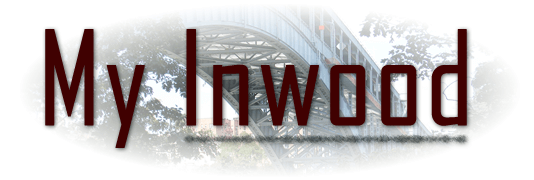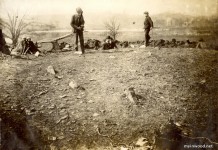Our suburbs are under the plow,
Our scaffolds are raw in the sun;
We’re drunk and disorderly now,
BUT—
‘Twill be a great place when it’s done
-Arthur Guiterman, “New York,” “Ballads of Old New York”, 1920
To say that Arthur Guiterman was one of the most prolific and talented poets of his generation would be somewhat of an exaggeration. In truth, the previous sentence is a complete misrepresentation of fact.
But what God given writing talent Guiterman lacked, he made up for in sheer volume. From the turn of the century until his death in 1943 Guiterman churned out more than a dozen volumes of popular verse geared towards the undiscriminating masses.
For example: In a poem about dinosaurs, published in a 1918 collection called The Mirthful Lyre, Guiterman wrote,
The Great Tyrannosaurus
Lived centuries ago;
Through marshes wet and porous
He rambled to and fro.
A true working writer, Guiterman never sought, nor deserved, critical acclaim. For Guiterman, it was all about the paycheck. In a surprisingly candid 1915 New York Times interview he said, “The poet must be influenced by the demand. There is inspiration in the demand. Besides the material reward, the poet who is influenced by the demand has the encouraging, inspiring knowledge that he is writing something that people want to read.”
 Guiterman encouraged the struggling writer to abandon all lofty literary notions and focus on humorous verse. Then, according to Guiterman, “He should look up publishers of holiday cards, and submit to them, Christmas, Thanksgiving, and Easter verses, for which he would receive about five dollars apiece.”
Guiterman encouraged the struggling writer to abandon all lofty literary notions and focus on humorous verse. Then, according to Guiterman, “He should look up publishers of holiday cards, and submit to them, Christmas, Thanksgiving, and Easter verses, for which he would receive about five dollars apiece.”
Guiterman’s main advice to the starving artist was tried and true—write for others, but also choose personally inspiring subject matter. For Guiterman, time after time, Inwood would provide that inspiration.
In Guiterman’s 1920 collection, Ballads of Old New York, he included verse on the naming of Tubby Hook, the mysteries of the Spuyten Duyvil and, in poem after poem, rhyming histories of Inwood’s founding family—The Dyckmans.
My personal favorite is his tribute to the still standing Dutch Colonial-style Dyckman Farmhouse which today is preserved in the form of a museum on 204th Street and Broadway.
THE DYCKMAN HOUSE
Plain as the brass of an old sword-hilt
Is the tale of the house that the Dyckmans built
In Charles the Second’s jovial reign,
Jan, the first of the Dyckman strain,
Fair-haired, ruddy, strong, and shrewd’
Cleared the soil, and his hearty brood
Killed the wolves in their rocky lairs,
Turned the loam with iron shares.
Full a hundred years had fled;
Well the Dyckman race had sped;
Sweet their orchards, broad their farms
When Freedom called true men to arms.
They nursed no doubts of the need of force;
They did their part as a thing of course.
Forth they sallied, boy and man.
William, head of the Dyckman clan,
Took the field, and his three good sons
Marched along with their flintlock guns—
Abraham bold and Michael keen
And Blithe young William, aged thirteen.
Through the war and its changing tides
The Dyckmans fought in the gallant Guides.
Their chronicles may still be found
In the blood-stained roll of the Neutral Ground,
And yellowed, time-worn records tell
How sturdy Abraham Dyckman fell,
Raiding the camp of De Lancey’s corps,
And how young William paid that score.
Peace at last!—In full retreat
Sounded the tramp of alien feet
Quitting the isle we love;–and then
The Dyckmans came to their own again.
But the camping foe had left their land
Bare as the back of a baby’s hand.
Waste was the fields and the orchards, too;
Burned was the home in which they grew.
The Dyckman breed were men of force;
They took their task as a thing of course.
Again they plowed their wasted leas,
Again they set their orchard trees;
With toughened timbers, marked by fire,
From tumbled barn and ruined byre,
They raised the framework, strongly planned,
Of this old house. Long may it stand
A monument for coming years
Of the last of the flower of pioneers.
For in this brave old house survives
The lesson blazed by its builder’s lives:
“Be true; and keep, whate’er befall,
The faith that each man owes to all.
Be strong; for strength shall purge you clear
Of all mean hatreds born of Fear.
Then, should the years that hither press
Bring other days of storm and stress,
A race of clean-limbed, clear-eyed men
Shall look the world in the face again.”










[…] at My Inwood Cole Thompson has published a nice little article about the poems of Arthur Guiterman (pictured above). Guterman was not so much a serious literary artist as he was an entertainer […]